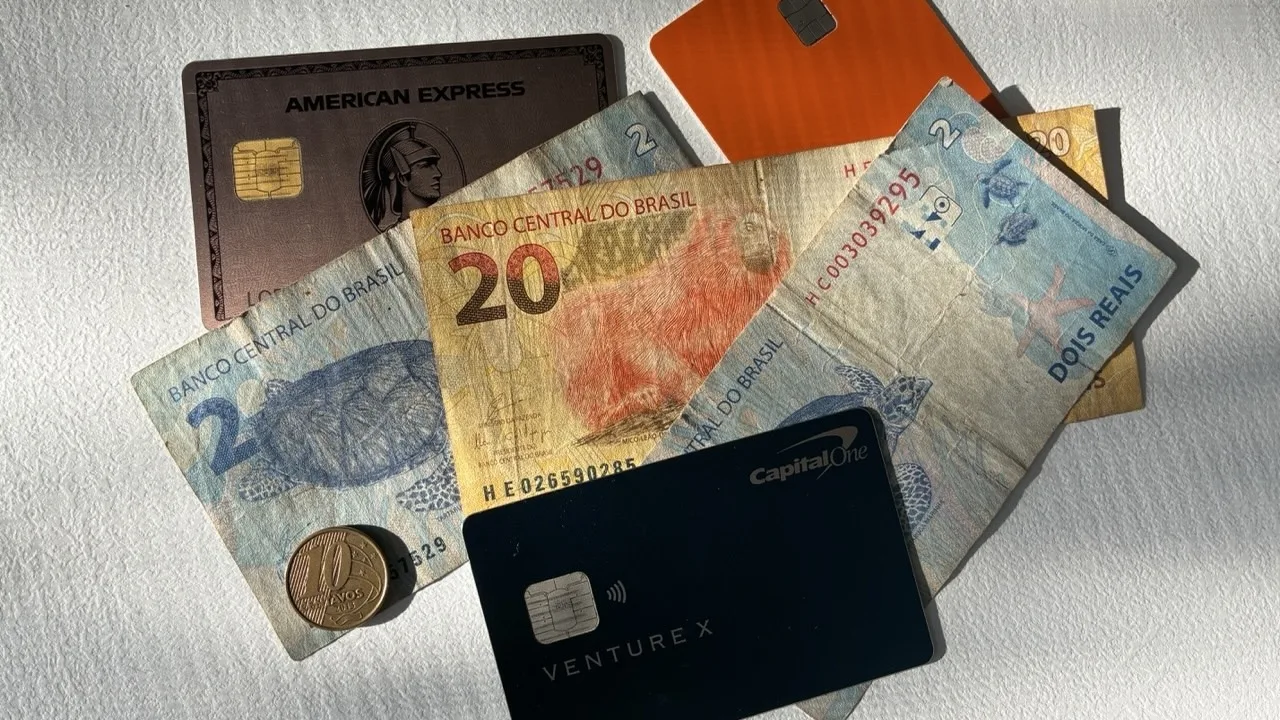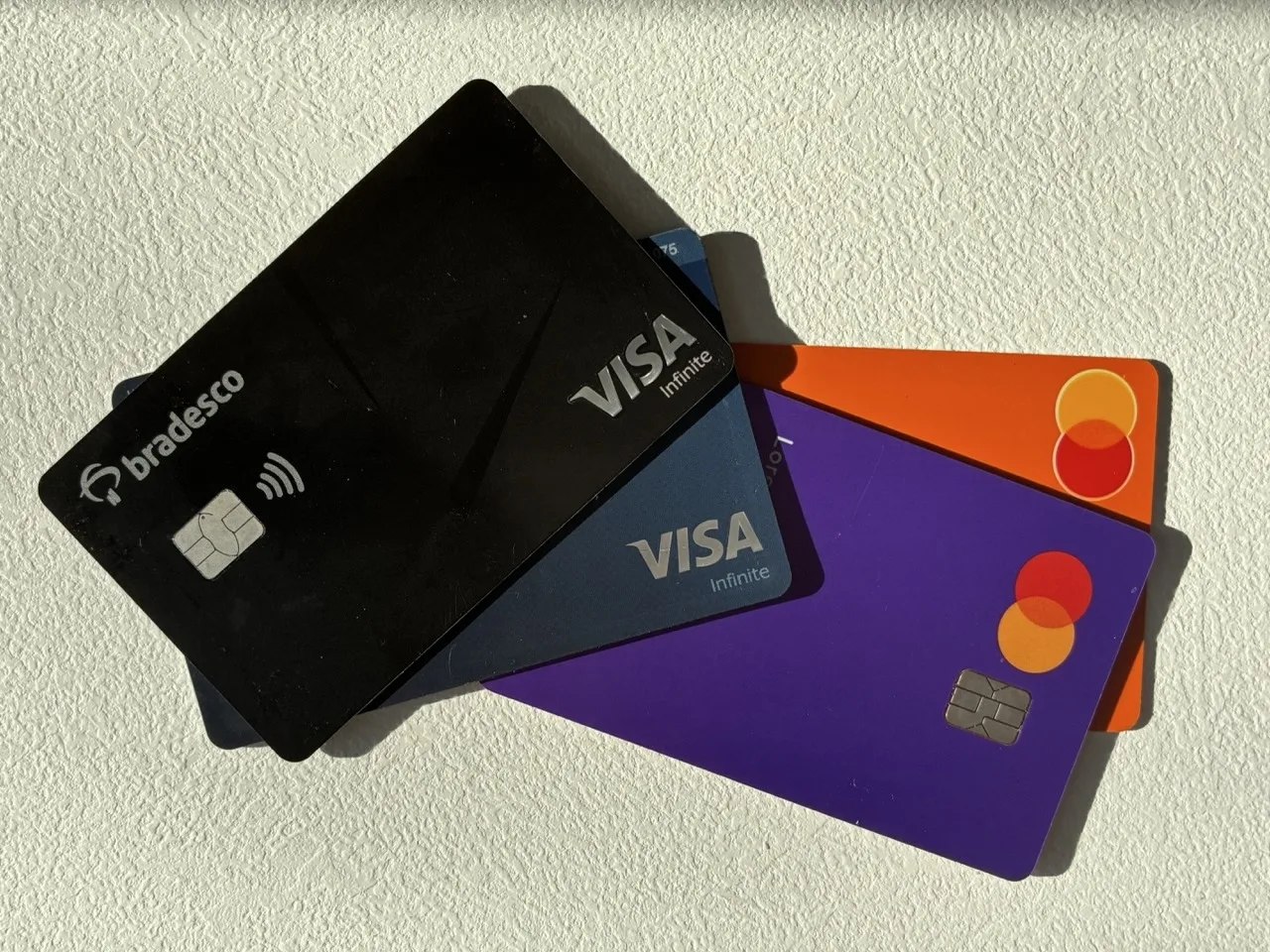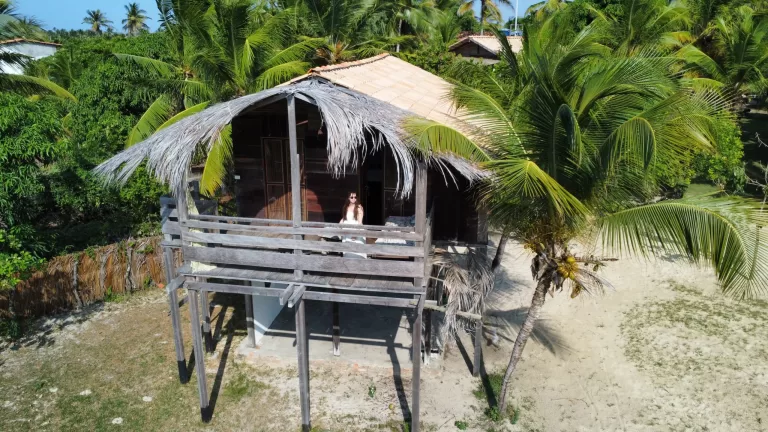Payments and Cash in Brazil: A Complete Guide for Travelers

Planning a trip to Brazil and not sure how to handle money once you arrive? You’re not alone!
I grew up in Brazil, and on a recent trip I spent months backpacking the country, testing every possible way to pay—ATMs, cash, international credit cards, PIX, you name it!
In this guide, I’ll share what actually works (and what doesn’t), so you can save money, stay safe, and avoid the common mistakes most tourists make.
Do you need cash in Brazil?
For most places, including São Paulo and Rio, answer is no!
You likely won’t need cash in Brazil for 99% of purchases, though I recommend having a small amount, like R$ 100 (~USD 20) for emergencies or a very rare cash-only stablishment.
How much cash can you bring to Brazil?
Cash exceeding R$ 10,000.00 or its equivalent in foreign currency must be declared in the airport upon arrival/departure and may be subject to fees.
⚠️ Be careful! Brazil has very strict import laws, and you might be taxed when trying to bring in items that exceed the quota set up by the local government. It is very common for travelers to be taxed on new clothes, electronics, gifts, and other valuables. Check out the official website of Brazil customs to review the latest regulations.
Is it easy to withdraw money in Brazil?
Yes! In Brazil you’ll find ATMs in airports, malls, and banks.
Cash withdrawal fees depend on the bank, but you can expect the ATM fee to be around R$ 25 (~USD 5) – R$ 50 (~USD 10) per withdrawal.
Golden rule for ATMs in Brazil:
Always reject the ATM’s exchange rate.
The machine will ask if you want to convert your withdrawal to your home currency (USD, Euro, etc.), and it might look tempting because you see the total right away. But don’t fall for it. These ‘dynamic conversion rates’ are usually heavily inflated, and you’ll lose a chunk of money.
Instead, reject the ATM’s offer and let your own bank do the conversion.
Any questions?
Ask all your questions in our Brazil travel Facebook group — we’ll be happy to help!
Should I exchange currency before travelling to Brazil?

There is no need to land in Brazil with cash considering the fact that Brazil is a card-friendly country and ATMs for cash withdraw are widely available in malls and airports!
If you want to dodge ATM fees in Brazil, it can be worth exchanging some cash before your trip—just double-check that your bank gives you a decent rate, since withdrawing money in Brazil usually gives you better exchange rates than what you’d get at your home bank.
Do I need a certain amount of money to enter Brazil?
No! You can enter Brazil carrying only credit/debit cards – though I always recommend having USD 100 on hand for emergencies.
Can I use US dollars in Brazil?
Regular vendors, such as tour operators, restaurants, and art shops typically only accept cash payments in the local currency of Brazilian Reais.
In Brazil, U.S. dollars in cash are generally only accepted at currency exchange offices (“Casas de Câmbio”), where you can trade them for the local currency.
Can I use my US card in Brazil?
Yes! US credit and debit cards, especially those by Visa or Mastercard, work very well in Brazil.
Considering that Brazil is almost a cashless society, you can expect your US-based Visa and Mastercard cards to work 99% of the time. In fact, even some homeless people in big Brazilian cities accept donations via credit card!
My experience: I grew up in Brazil and traveled the whole country, and the only place I had trouble relying on credit cards was the remote area of Chapada dos Veadeiros
To be on the safe side while using a US card in Brazil, I recommend messaging or calling your bank to double check:
- If your card allows international transactions (though the answer is likely yes, as this is the standard in the globalized economy we live in)
- If you’re charged any international transaction and withdrawal fees (this varies a lot by card)
- If you need to notify them before traveling (some old-school banks will not let international transactions go through if not notified in advance)
⚠️ Caution! Card scams are common in Brazil, so make sure to follow general safety guidelines for traveling Brazil, such as sticking to using credit cards over debit.
What is the best card to use in Brazil?

During a trip to Brazil, it is best to pack a debit and a credit card that:
- Does not charge international transaction or withdrawal fees
- Is issued by Visa or Mastercard
My favorite US-based card options, and the ones I carry in my wallet when traveling to Brazil are:
Best debit cards for traveling Brazil
✅ Best overall debit card: Capital One 360 Checking Account
Capital One is my favorite US-based bank and my 360° debit account has served me well during my many international travels – including countless trips to Brazil!
I was always able to withdraw money internationally without incurring bank fees (though sometimes ATM operator charges a small fee).
✅ Best for cash withdrawal: Schwab Bank Visa Platinum Debit Card
If you’re planning to withdraw money multiple times, the Schwab debit card might be the best choice for you, as it refunds fees charged by the ATM operator.
Best credit cards for traveling Brazil
✅ Best overall credit card: Capital One Venture X
The Capital One Venture X is my absolute favorite travel credit card – no transaction fees, amazing benefits (such as access to airport lounges and travel insurance), and good customer service!
The annual fee for this card is $300 – and if you look into the benefits, you’ll see that it pays for itself!
✅ Best no annual fee credit card: Apple Card
The Apple Card is my top choice for a no-annual-fee card with no international transaction fees.
It’s simple to use, customer service is easy to reach via text even while abroad, and earning 2% cashback on Apple Pay purchases is a great plus!
What cards are not widely accepted in Brazil?
While American Express does operate in Brazil, it isn’t accepted everywhere.
Discover cards are rarely accepted at all.
Does Brazil take Apple Pay?
Apple Pay is as widely adopted in Brazil as in the U.S. – most businesses accept it!
What is PIX?
PIX is an electronic instant payment system that works very similarly to Zelle in the US.
PIX is widely used in Brazil, and vendors often offer 5-10% discount on purchases paid through PIX.
To be able to use PIX easily, you need to have a Brazilian CPF, which is a similar concept to the US Social Security Number.
⚠️ Caution! PIX transfers have little to no protection against fraud, so only send money to trusted vendors.
Can I use PIX as a traveler in Brazil?
A lot of travelers ask me if it’s worth getting a CPF (Brazilian taxpayer number) through a consulate before their trip. In all honesty, unless you’re planning to stay in Brazil for more than three months, it’s usually not worth the headache of applying for a CPF and opening a local bank account just to use PIX.
It’s true that a CPF is typically required to use PIX (Brazil’s instant payment system). But in practice, my foreign husband has managed to make PIX payments directly from his US checking account using Remitly.
The process with Remitly is pretty straightforward and can come in handy for things like paying for a reputable remote lodge (like the ones in the Amazon or Porto Jofre) or a multi-day tour with a trusted operator.
Is Brazil a tipping culture?
No, Brazil is not a tipping culture! Brazilians typically only tip in restaurants, which is a 10% gratuity fee that is already included in the check 99% of the time.
Outside restaurants, tipping isn’t expected—whether it’s taxis, tours, or salons.
So unless you’re in a restaurant, tipping isn’t something you’ll need to think about in Brazil.
The wrapup: cash, cards and payments in Brazil for traveler
Access to money shouldn’t be a source of stress on your trip to Brazil! Now you know how payments work—whether you plan on using cash, credit/debit cards, or PIX.
If you found these tips helpful? Check out my other Brazil travel guides for more!
✅ Is Brazil safe? A travel safety guide by a solo female traveler
✅ Best books about Brazil: top 3 books to read before traveling
✅ Best luxury hotels in Rio de Janeiro
Any questions?
Ask all your questions in our Brazil travel Facebook group — we’ll be happy to help!






